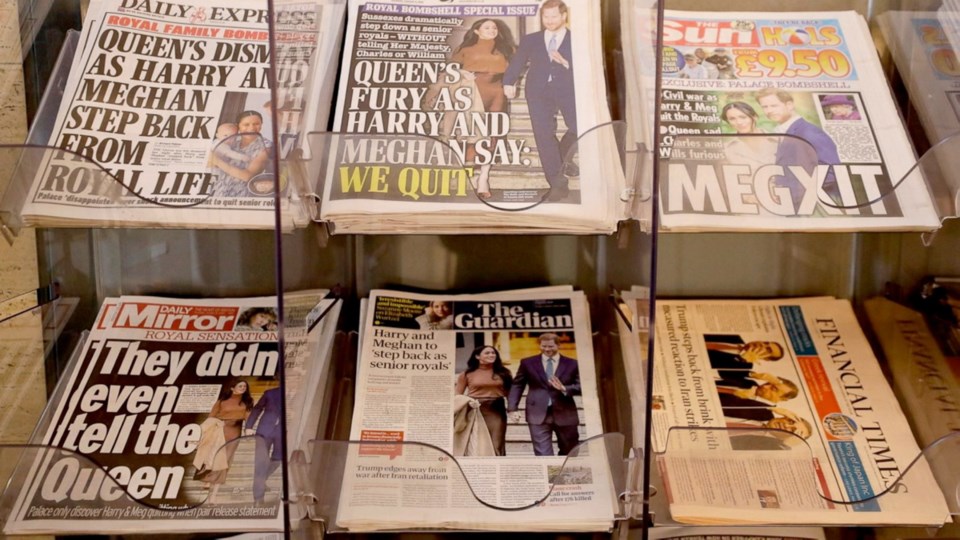When Prince Harry and his wife, Meghan Markle, were visiting Vancouver Island during the New Year break, somebody with a telephoto lens captured an image of them walking on a beach in North Saanich. The photo was subsequently published. Is this fair game?
And what if it was you? Would that be fair game?
I believe the answer to both questions is yes, but first, the background.
B.C.’s Personal Information Protection Act (PIPA) limits the manner in which any agency, organization, corporation or government ministry can intrude on your privacy. They can ask for personal information, including photographs, but the request must be reasonable.
For example, a bank can ask to see photo ID before issuing you a credit card.
The Ministry of Health can demand proof of identity before giving you an MSP card.
In both instances, these agencies are entitled to know they’re not dealing with a case of fraud.
But your consent is required, though if you withhold it, the bank or the ministry can turn you away.
However, there is an important exception in PIPA. If a journalist captures your photo without first gaining permission, and then publishes it, that’s legal under the act. The justification is that freedom of the press plays a vital role in our society and must be protected, even if the result is some loss of privacy.
A paparazzi cannot crouch on private property to take the photo. That’s trespassing.
But otherwise, this is fair game. So no, I don’t believe Harry and Meghan can sue, and neither could you.
Other countries take a different view of this. When a paparazzi, hiding half a mile away, captured a photo of Kate Middleton, Duchess of Cambridge, sunbathing topless on a private estate in France, Middleton sued in a British court and won.
So long as that photographer wasn’t trespassing, she would have lost in B.C.
Now PIPA only limits the behaviour of organizations, not individuals (journalists aside). However, B.C. also has a Privacy Act, which does apply to individuals.
If your neighbour takes a photo of you sunbathing in your backyard without your permission, you can sue under the terms of the act.
I believe there has never been such a lawsuit in our province, but yes, if your privacy is invaded by another individual, you have a legal recourse. And this covers most forms of unauthorized surveillance, such as eavesdropping, hacking your computer, etc.
Though here, too, there is an exception. If a private investigator has been hired by a husband (say) to find out if his wife is having an affair, that is permitted. The rationale is that reasonable investigations must be allowed, the emphasis being on “reasonable.”
But this whole field is in a state of flux. What about those folks who install a dashboard camera on their car? Aren’t they breaking the law?
They’re private individuals, not investigators. They’re unavoidably capturing images of passersby without permission. How can this be legal?
The answer, such as it is, appears to be that technologies like dashboard cameras didn’t exist when the Privacy Act was introduced. Neither, for that matter, did computer hacking, at least in its present ubiquitous form.
I confess I don’t lie awake at night fretting over what happens to celebrities, at least within reason. If you’ve chosen a lifestyle that must inevitably be conducted in a highly publicized environment, you have to expect some curiosity about your personal life. It comes with the job.
But the broader message is that while safeguards do exist to protect the privacy of ordinary individuals, they grow weaker by the day. Indeed, as snooping technologies proliferate faster than governing bodies can keep up, it’s a fair question whether, down the road, privacy as once we knew it will survive.



